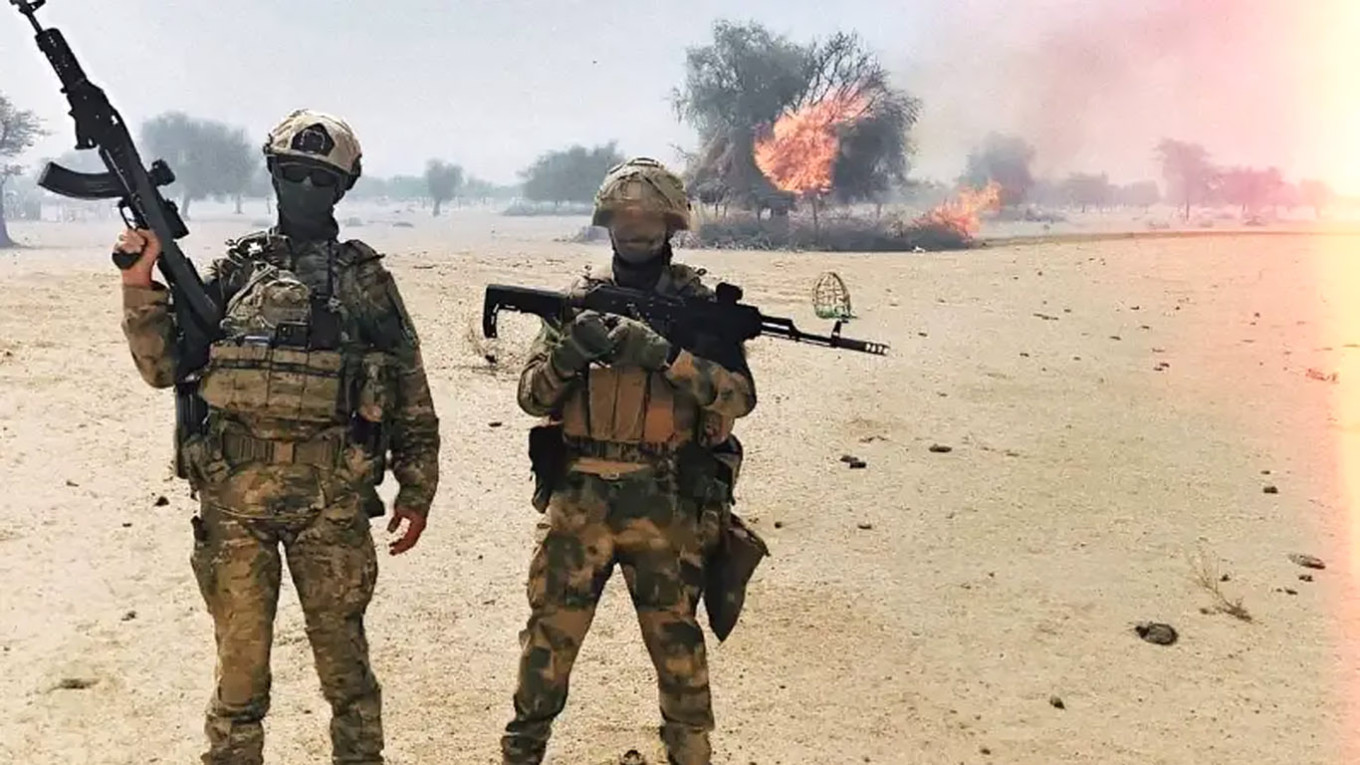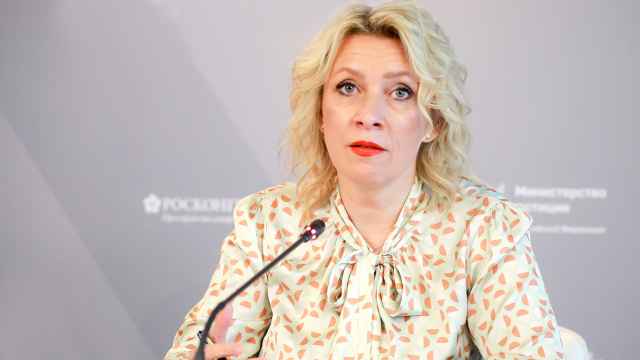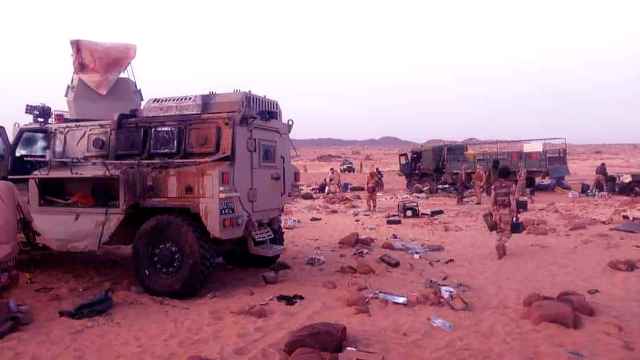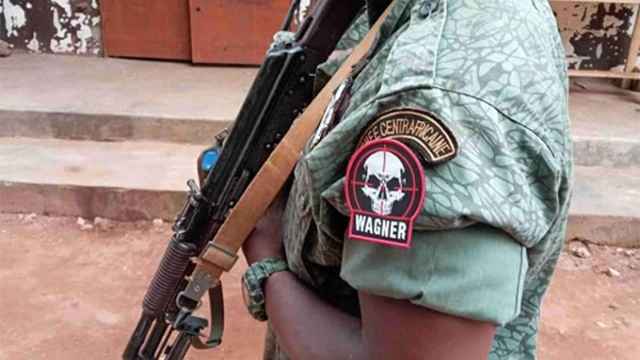Russian mercenaries have suffered heavy losses in two-day fighting against Tuareg rebels near Mali's border with Algeria, Russia’s Wagner mercenary group confirmed on Monday in a rare statement.
A mainly Tuareg separatist coalition claimed earlier on Sunday it took a major victory over Mali's army and its Russian allies.
In its statement, Wagner detailed “fierce battles” with militants which it said lasted from July 22 to July 27 and resulted in a series of tactical victories followed by losses.
According to Wagner, a group of Russian mercenaries were hit by a sandstorm that allowed rebels to “regroup” and increase the number of their militants to 1,000.
Experts say the battles resulted in one of the largest losses suffered by Russian mercenaries in overseas operations, excluding their involvement in Ukraine.
Here’s what we know about the incident:
Heavy fighting
Large-scale fighting broke out Thursday between the army and its Russian allies and separatists — the rebel movement called the Permanent Strategic Framework for Peace, Security and Development (CSP-PSD) — in Tinzaouatene, after the army announced it had retaken control of several districts, AFP reported.
"Our forces decisively obliterated these enemy columns on Saturday," said a statement by Mohamed Elmaouloud Ramadane, a spokesman for CSP-PSD.
"A large amount of equipment and weapons were seized or damaged" and prisoners taken, he added.
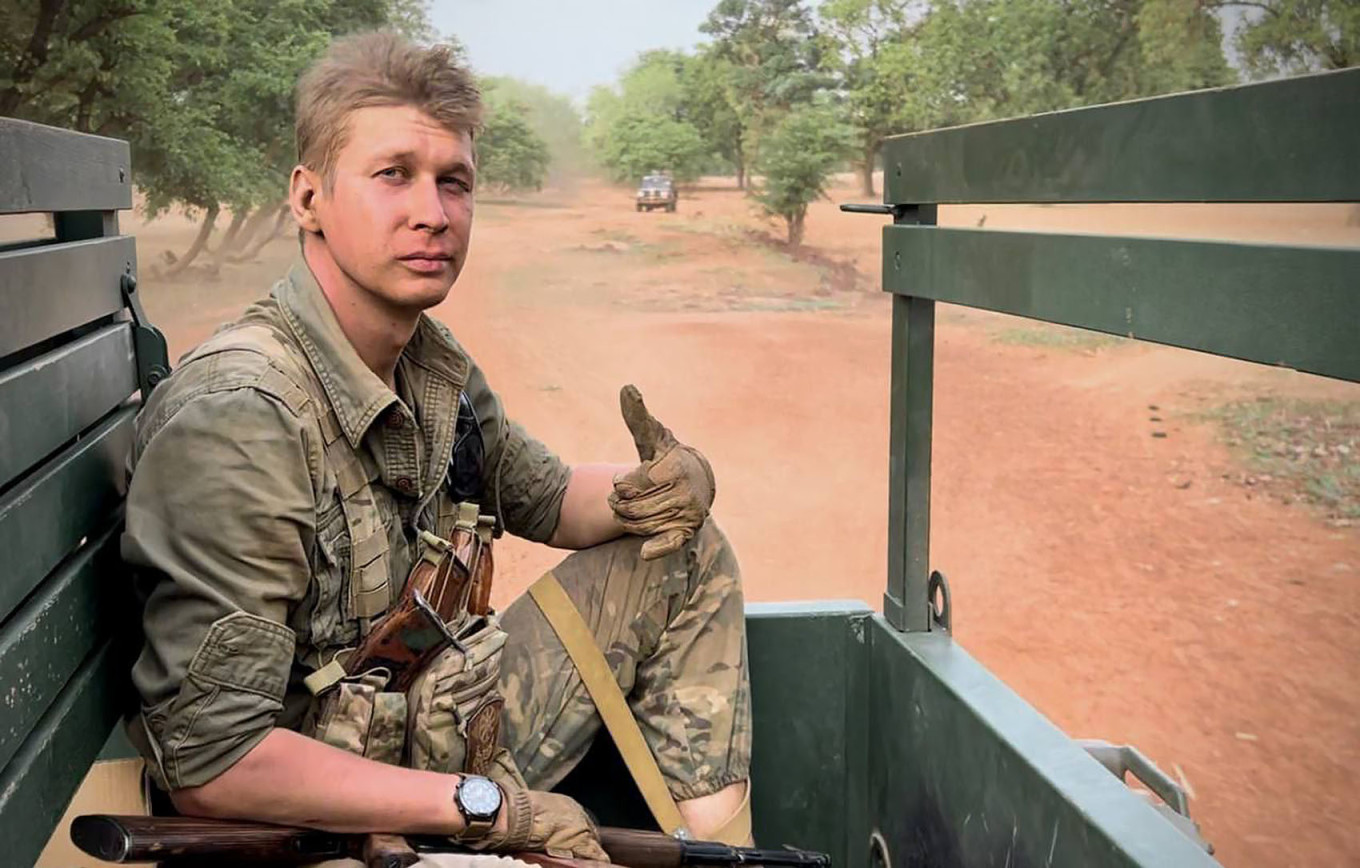
According to rebels, seven separatist fighters were killed and 12 wounded in the fighting in the Tinzaouatene district.
Wagner claimed that the rebels were able “to regroup and increase their numbers to 1,000 people” due to the sandstorm.
Unverified footage circulated on social media over the weekend showed several bodies, who are believed to be killed Wagner and Malian personnel lying on the ground and white soldiers among the prisoners.
Mercenaries' losses
The mercenary group did not say how many of its fighters were believed to have been killed, and reports on the death toll have been conflicting.
Russian Telegram channels closed to Wagner said that 20 mercenary fighters were killed and five were taken hostage.
The BBC Russian Service cited a source who previously served with Wagner as saying that at least 82 mercenary fighters had been killed in the attack.
A local official and a former worker with the UN mission in Mali told AFP the Malian army had retreated with at least 15 fighters from Wagner killed or arrested.
The Al-Qaeda-linked group Jama'at Nusrat al-Islam wal Muslimeen (JNIM) in a statement claimed they had attacked the Malian army convoy and Wagner allies and said it killed 50 Russians and 10 Malians, AFP reported, adding that it could not verify the claims. Tuareg rebels denied the group's involvement and accused it of trying to steal the separatists' spotlight.
The Russian state-run TASS news agency reported on Sunday that among those killed was military blogger Nikita Fedyanin — the administrator of Grey Zone, a high-profile channel on Telegram — a channel with over 568,000 subscribers which is believed to be linked to Wagner.
According to reports on social media, Wagner commander Anton Yelizarov — also known by the alias Lotos — was reportedly captured or killed in the fighting. Russian Telegram channels claimed that the Russia Africa Corps — an umbrella group for Russian mercenaries in Africa under the Russian Defense Ministry — freed Wagner hostages for ransoms. The claims could not be independently verified.
Russian mercenaries in Mali
From its inception in 2014 until Wagner leader Yevgeny Prigozhin’s death in 2023, Wagner had been seen as an armed extension of the Kremlin’s influence in Africa.
Following his death, the Russian Defense Ministry assumed control of Wagner's operations in Africa, incorporating them into a larger organization known as Africa Corps — but experts questioned the command structures on the ground.
Among the African countries where Africa Corps planned to station its troops were Burkina Faso, Libya, Mali, the Central African Republic and Niger, the Vedomosti business daily reported in December, citing unidentified sources.
Reports that Wagner had resumed recruitment in Africa also emerged in April. Anonymous Defense Ministry sources said “several thousand” Russian soldiers have been transferred from Ukraine to Africa — both as mercenaries and regular soldiers — since mid-February, the investigative news outlet Vyorstka and research group Nordsint reported in a joint investigation.
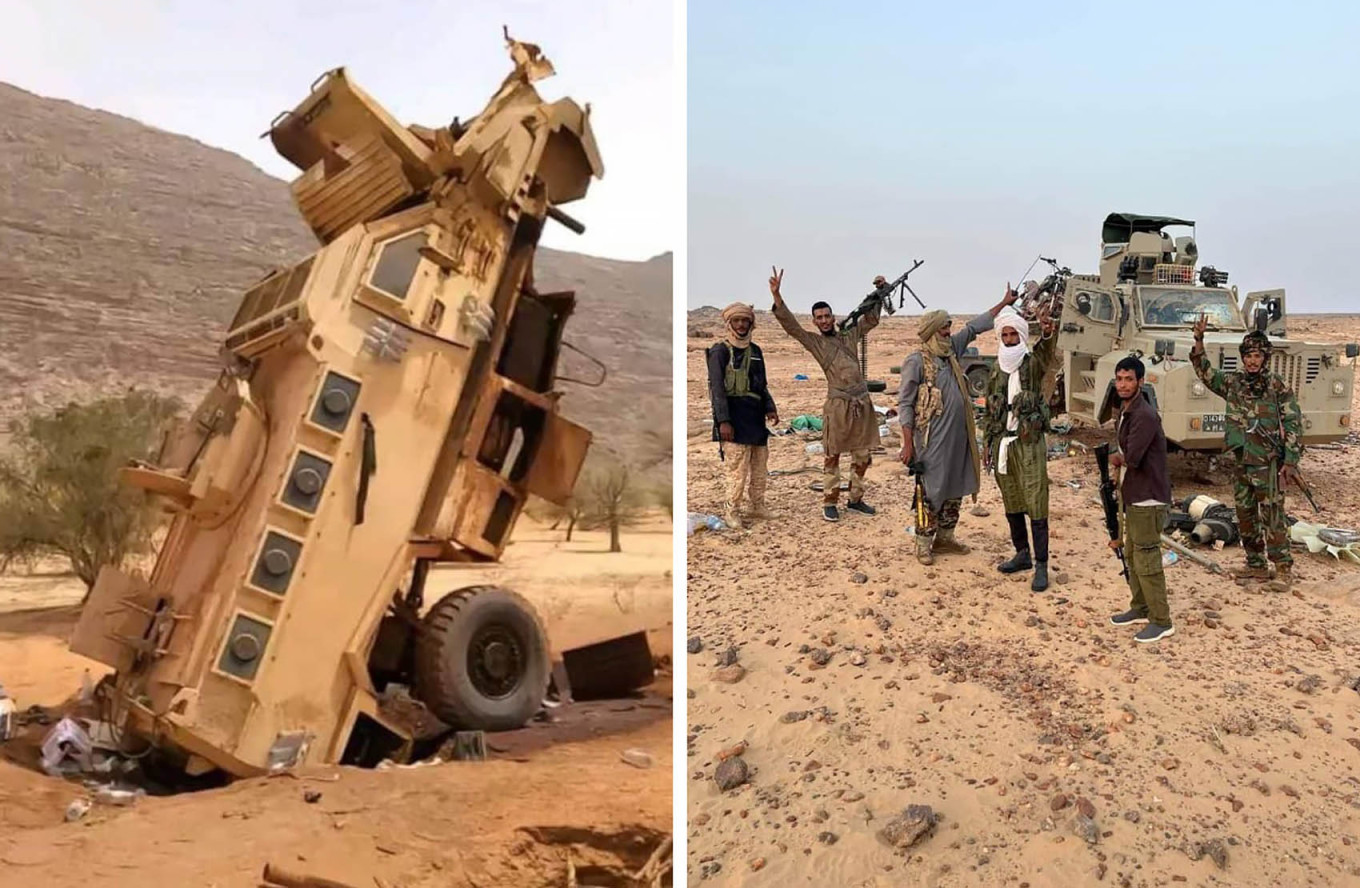
At the time, the investigative report identified Mali as the key destination for the new recruits.
Mali has been unsettled by violence by jihadist and criminal groups since 2012.
A junta led by Colonel Assimi Goita took power in 2022 and broke the country's traditional alliance with France, in favor of Russia.
According to experts, the fighting in Mali represents one of the heaviest losses for Russian mercenaries in international operations — aside from their activities in Ukraine and the battle of Khasham in Syria in 2018, where Wagner mercenaries are believed to have lost dozens of fighters.
Russian officials have not yet commented on the incident.
Ukrainian military intelligence spokesperson Andriy Yusov claimed Monday that Ukraine allegedly helped rebels with information “which allowed them to conduct a successful military operation against Russian war criminals," without providing further detail.
Speaking about the battle in Mali and the reported heavy losses, journalist Denis Korotkov from the Dossier Center, who has been investigating Wagner and its activities for years, raised questions about the command of the mercenaries.
“On one hand, the so-called African Corps, overseen by the Defense Ministry, is engaged in African projects,” Korotkov told The Breakfast Show YouTube channel.
But it is unclear who exactly is currently in charge of commanding and planning military actions on the ground, Korotkov said.
According to John Lechner, an independent researcher focused on Russia, Prigozhin’s structures have not yet been moved under Africa Corps in Mali precisely because of the risk of something like the latest battles.
“Russian military planners are well aware of the difficulties facing them in Mali and the Wagner label has been retained to hedge for precisely these types of scenarios,” Lechner said on X, formerly Twitter.
AFP contributed reporting.
A Message from The Moscow Times:
Dear readers,
We are facing unprecedented challenges. Russia's Prosecutor General's Office has designated The Moscow Times as an "undesirable" organization, criminalizing our work and putting our staff at risk of prosecution. This follows our earlier unjust labeling as a "foreign agent."
These actions are direct attempts to silence independent journalism in Russia. The authorities claim our work "discredits the decisions of the Russian leadership." We see things differently: we strive to provide accurate, unbiased reporting on Russia.
We, the journalists of The Moscow Times, refuse to be silenced. But to continue our work, we need your help.
Your support, no matter how small, makes a world of difference. If you can, please support us monthly starting from just $2. It's quick to set up, and every contribution makes a significant impact.
By supporting The Moscow Times, you're defending open, independent journalism in the face of repression. Thank you for standing with us.
Remind me later.



